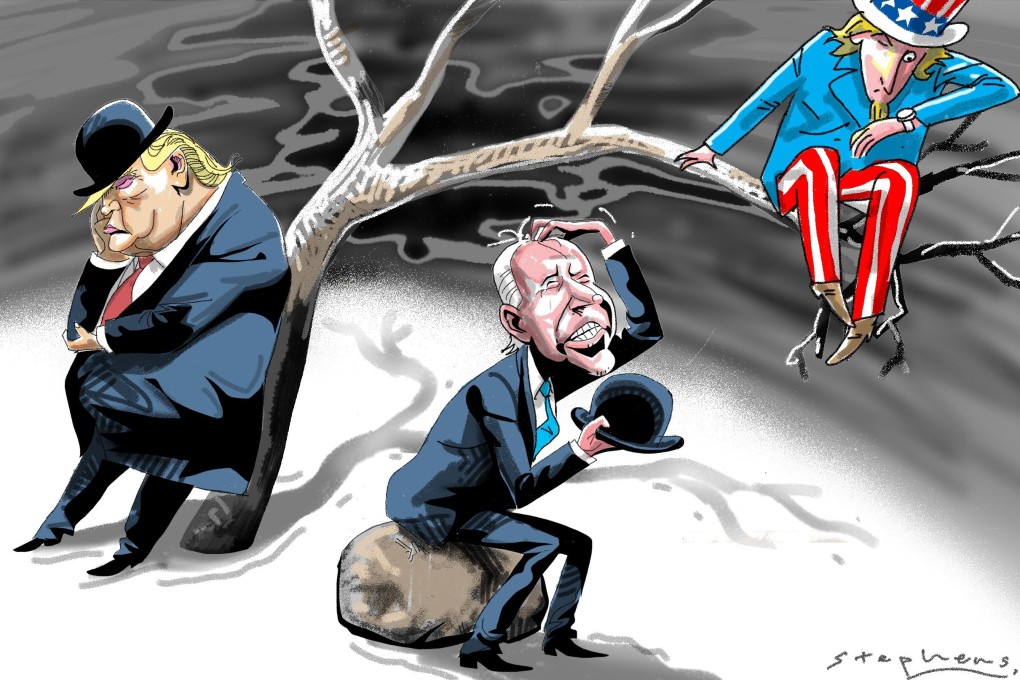Opinion | US election: the world is waiting for Biden to beat Trump and change the course of US foreign policy
- The two-act plot of November’s presidential election must play out before US foreign policy can reboot, leading to an enervating waiting game
- The best that even thoughtful US observers can do for now is to wait for whoever or whatever is to come, as few dare to predict beyond November

Except for the occasional audio blip or focus flicker, the screen sessions – though lacking the ineffable feel of human touch – sufficed. The usual annoying interruptions and talking over each other were minimised; one could complete whole sentences, sometimes a slew of them. Maybe this technology somehow gets us down to business by cutting out some of the nonsense?
Last week, a pair of confidential trans-Pacific teleconferences came up on my work list that had similar endings. One hooked into a private conference originating from Seoul; the other starred a sharp woman in Beijing.
Remember that renowned play by Samuel Beckett? Minimalist art at its most minimal, the play’s spare two-act plot revolves around two guys waiting for someone named Godot to arrive. That reminded me of last week’s meetings. In both, the same exact phrase surfaced: “Of course, we’re all just waiting…”

02:35
‘I’m a little upset with China’, some of Trump’s more memorable quotes on the coronavirus pandemic
